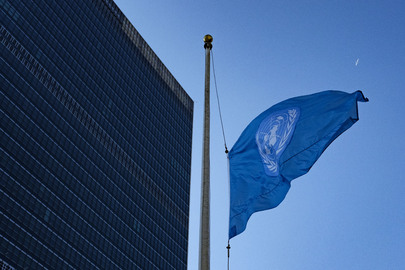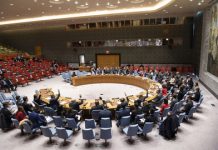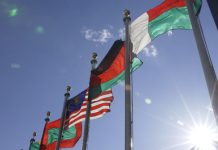Sudan: UN condemns deadly attack on civilians in Al Fasher, North Darfur
The United Nations in Sudan has condemned an attack on a hospital, residential areas, and a livestock market in North Darfur state that killed or injured at least 97 civilians.
The attack comes at a time when El Fasher City was experiencing relative calm and markets had reopened and families were going back to work. The resumption of economic activities and humanitarian access is key to avert famine. Sudan is facing its worst-ever levels of food insecurity with 25.6 million people, that’s over half the population, facing acute hunger.
“These horrific attacks on civilians and infrastructure are deeply saddening,” said Clementine Nkweta-Salami, the Humanitarian Coordinator for Sudan. “The United Nations in Sudan strongly condemns these indiscriminate attacks.”
Since the conflict began in April 2023, over 18,800 people have been killed and 33,000 injured. Ten million people including five million children have been displaced, two million of whom have crossed into neighbouring countries.
Ms. Nkweta-Salami called for the fighting to stop and for donors to disburse their pledges, as the Sudan humanitarian appeal is only 32 per cent funded. Humanitarian partners have reached 7.1 million people between January and May but more needs to be done to avert a large-scale famine.
New initiative launched to speed up bird flu vaccine access for low and middle-income nations
The UN World Health Organization (WHO) and partners launched a bid on Monday to speed up the development and distribution of H5N1 avian influenza, also known as ‘bird flu’, vaccines in low and middle-income countries.
Pharma company Sinergium Biotech is leading the effort, using the mRNA Technology Transfer Programme, which was launched in July 2021 by the WHO and Medicines Patent Pool (MPP).
The Argentinian company has developed vaccine candidates against the H5N1 avian influenza virus and will test proof of concept in pre-clinical models.
Upon successful testing, the technology, materials, and expertise will be shared with other manufacturers to boost the development of H5N1 vaccine candidates.
Tedros Adhanom Ghebreyesus, WHO Director-General, said that the programme would ensure better preparedness and a more equitable response to future pandemics.
The bird flu virus is a public health risk because it’s circulating widely in animals and can trigger a future pandemic. Just last week the UN Food and Agriculture Organization warned of an increase in avian influenza cases in the Asia-Pacific region, where 13 people have been infected in Cambodia after a long period of minimal human infection.
Thousands of Gazans are being forced to flee their homes amid rising regional tensions and continued evacuation orders from the Israeli army.
New forced displacements are taking place in Gaza as regional tensions escalate after a deadly strike in the Golan Heights where 12 young people were killed over the weekend.
The Israeli army has issued new evacuation orders for the Nuseirat and Bureij refugee camps.
According to the UN agency assisting Palestine refugees, UNRWA, these evacuation orders are now “daily” and families have no time to gather belongings before fleeing. “Families are forced to move again and again, there is no security in the Gaza Strip,” UNRWA reported.
The UN Office for the Coordination of Humanitarian Affairs (OCHA) reported that 29,000 people were in the evacuation zone on Sunday. Over the past week, 200,000 people, nine per cent of Gaza’s population, have been displaced by similar orders. Only 14 per cent of Gaza is not under evacuation orders.
UNRWA chief Philippe Lazzarini described the situation as “chaos” and “panic”, with Gazans given a few hours to evacuate, sometimes on foot or donkey carts.
“Almost all Gazans have been affected by these orders, many forced to flee once a month since the conflict started 9 months ago,” he said.
The situation has also devastated Gaza’s education system. A UN education report showed that 93 per cent of schools were damaged, and many were directly hit. A third of the affected schools are UNRWA schools.
These schools used to serve about 370,000 students and about 14,000 teachers, a significant part of Gaza’s educational infrastructure.
Schools are also being used for military purposes, detention and interrogation centres. At least 84 per cent of Gaza’s schools will need to be fully rebuilt or majorly rehabilitated to be functional again.
Music composed and produced by Joachim Harris. All rights reserved
Source of original article: United Nations (news.un.org). Photo credit: UN. The content of this article does not necessarily reflect the views or opinion of Global Diaspora News (www.globaldiasporanews.com).
To submit your press release: (https://www.globaldiasporanews.com/pr).
To advertise on Global Diaspora News: (www.globaldiasporanews.com/ads).
Sign up to Global Diaspora News newsletter (https://www.globaldiasporanews.com/newsletter/) to start receiving updates and opportunities directly in your email inbox for free.



























